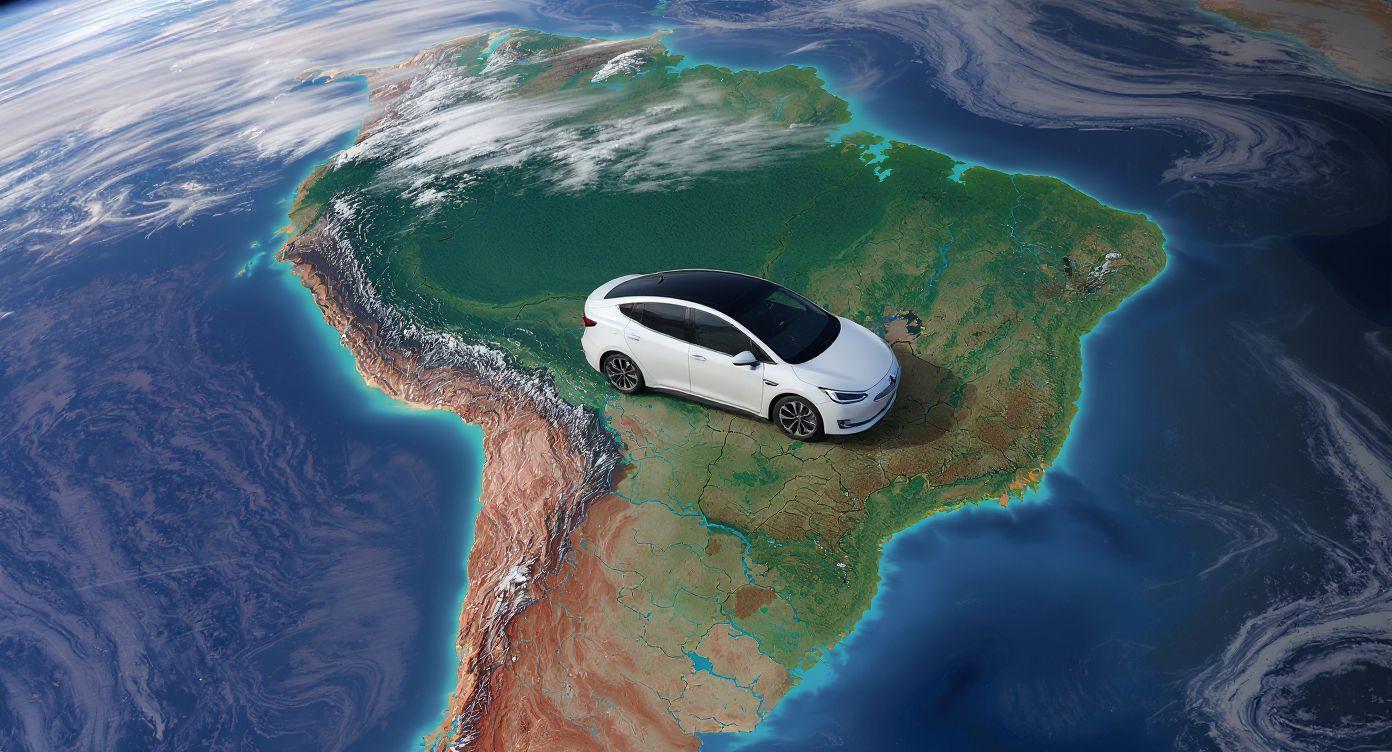Summary
- Specific national pathways shape the scope and speed of the transition to electromobility. Brazil is a particularly interesting case.
- The agricultural industry and the national oil company Petrobras are slowing down the introduction of electric cars. However, the market entry of Chinese electric car companies is showing initial success.
- Brazil’s course remains shaped by national characteristics. Ultimately, this could result in a very specific road fuel composition that combines petrol, ethanol and batteries.
Road fuels – one model fits it all?
- Electromobility is by far the best solution in a decarbonised electricity system: in terms of climate policy, security policy and often industrial policy.
- However, technology paths are developed and chosen in a national context. Historically evolved economic and political structures or natural conditions play a decisive role. This mixture of factors can either accelerate (see China, Norway) or delay the introduction of electric cars.
- The second group includes, for example, some of Japan’s confusing energy policy choices (green ammonia for coal-fired power stations?!). Even in this high-tech country, which has no fossil resources, electric cars have so far played no role (3% market share). Brazil is a second example.
News from Brazil
- Brazil has also been pursuing its own course in road transport fuels. Two news items caught my attention in recent days:
- A few days ago, the CNPE (National Energy Policy Council) decided to raise biofuel quotas in road fuels. The share of ethanol is to rise from 27% to 30%, and the share of biodiesel in diesel fuel from 14% to 15%. The agricultural lobby has once again prevailed.
- Electric cars: The proportion of EVs among new vehicles is only 6% this year. Most of these are plug-in hybrids (PHEVs). In view of the potential for decarbonisation by electric cars, this is very little. Around 90% of Brazil’s electricity mix already consists of renewables (mainly hydropower).
- In June 2025, just 5900 BEV were sold.. In absolute numbers, the market for combustion engine vehicles is still growing twice as fast as the electric fleet.
- Only risk-taking Chinese automotive groups (especially BYD with a 80% market share in BEV) were able to create this mini-boom in recent months. However, deficiencies in the charging infrastructure and low petrol and ethanol prices remain major hurdles that deter other EV suppliers.
The Brazilian Legacy: Ag & Oil
- Bioethanol & Biodiesel
- The conservative agricultural industry has always played a prominent role in Brazil. Sugarcane was the country’s most important export commodity as early as the 16th century. Even after the country gained independence (1822), it continued to exert considerable influence – not always for the best of the country.
- In the 1970s, the military government decided to make the country less dependent on oil imports by promoting bioethanol. A large national automotive industry emerged, with significant involvement from the German Volkswagen Group. Flex-fuel vehicles quickly became popular. They can be fuelled with either bioethanol or petrol. This allows consumers to respond easily to different price trends in the sugar and oil markets.
- Brazil now plays an important role worldwide in bioethanol and, increasingly, in biodiesel. The current ‘Fuel of the Future’ programme is intended to further expand the national supply of biofuels and also serve new markets such as SAF (Sustainable Aviation Fuels).
- As for bioethanol, Brazil has a 30% share of the global market with 650 kb/d (2025) and ranks second behind the USA in terms of production.
- As for biodiesel, Brazil is the No.3 behind Indonesia and the USA with 180 kb/d (13% world market share).
- Fossil oil
- Just a few years after the launch of the ethanol programme in the 1970s, huge oil reserves were discovered in Brazil, mainly off the coast. Initially, development progressed slowly. Today, Brazil is one of the world’s 10 largest oil producers, with 3.5 mb/d, and is independent of oil imports. Production from the very deep pre-salt oil fields far offshore is one of the most technically and financially complex undertakings in the world.
- Brazil’s oil consumption is rising steadily. This year, it is expected to reach 3.4 mb/d, slightly more than 3 per cent of global oil consumption.
- By the end of this decade, the country is likely to be the fourth largest oil consumer in the world, after the United States, China and India.
- With a population of 212 million, Brazil’s fossil oil consumption per capity is already above the global average, despite the important role played by biofuels. However, the agricultural sector also contributes to this: diesel demand rises sharply during harvest and planting seasons. The supply of battery-electric vehicles in this sector is still low.
Outlook: Transport fuel markets do jeito brasileiro?
- What might Brazil’s fuel path look like in the future? Perhaps in the 2040s we will see a compromise that combines the influences of electric car manufacturers, agribusiness industry and state-owned oil company Petrobras:
- Growing fossil oil exports to the global market
- Slower growth of pure battery electric vehicles (BEVs) and instead a combination of ethanol/petrol engines and batteries, i.e. PHEVs or EREVs (an additional combustion engine charges the battery when needed).
- New markets for the bioethanol and biodiesel industries: SAF for aviation, biofuels or bio-methanol as shipping fuels.
- The volatile market prices for electricity, sugar/ethanol and oil could then lead to a fuel mix that reacts quickly to market impulses.
Sources
Your Comment
- Please use our contact form
